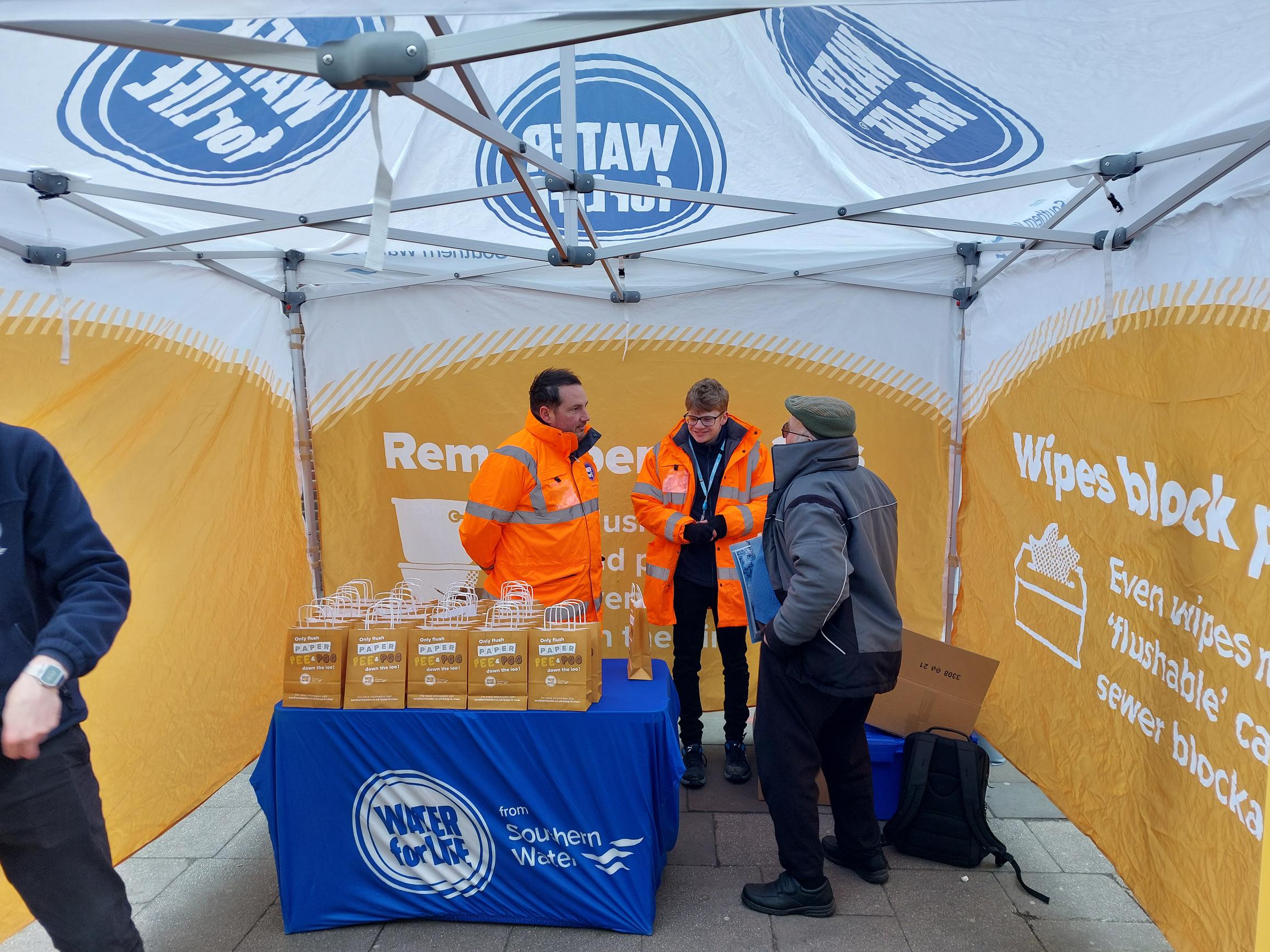
Day Of Action by ‘Unflushables’ Team in Kent
Our crack team of blockage busters have been out and about in a Kent town to explain how food businesses and households can help keep local sewers free from fatbergs.
44,500 blockages in Kent in the last five years
Our crack team of blockage busters have been out and about in a Kent town to explain how food businesses and households can help keep local sewers free from fatbergs.
Members of our ‘Unflushables’ team held a day of action in Gravesend on Thursday 13 March 2025, to raise awareness of the risks of flushing fat, oil and grease (also known as FOG) down kitchen sinks and items like wetwipes and cotton buds down toilets.
Visits were made to restaurants, cafes and takeaways, with reminders and advice provided, along with chats with shoppers about good waste disposal habits – all with the aim of reducing the likelihood of nasty sewer blockages which threaten to flood homes and communities.
In Kent alone, the number of blockages caused by fat, oil, grease and other ‘unflushable’ items has almost reached 45,000 over the last five years.
Steve Williams, Network Protection Enforcement Manager, said:
“Sewer blockages can result in devastating flooding to the environment, businesses and homes. It was great for our team to share some critical advice with customers and businesses about how we can keep our network flowing, while supporting people with their water use.
“Around 66 per cent of blockages are preventable. Fat, oil and grease should never go down the drain. Instead, allow them to cool in containers and put them in the bin.”
Meanwhile, customers should flush only the three Ps down the loo – pee, paper and poo. Nappies, baby wipes, tampons, sanitary towels, panty liners, colostomy bags and condoms should be bagged and binned. Cleansing wipes, ear buds, dental floss, plastic razors and cotton pads should all go in the bin, not down the loo.
